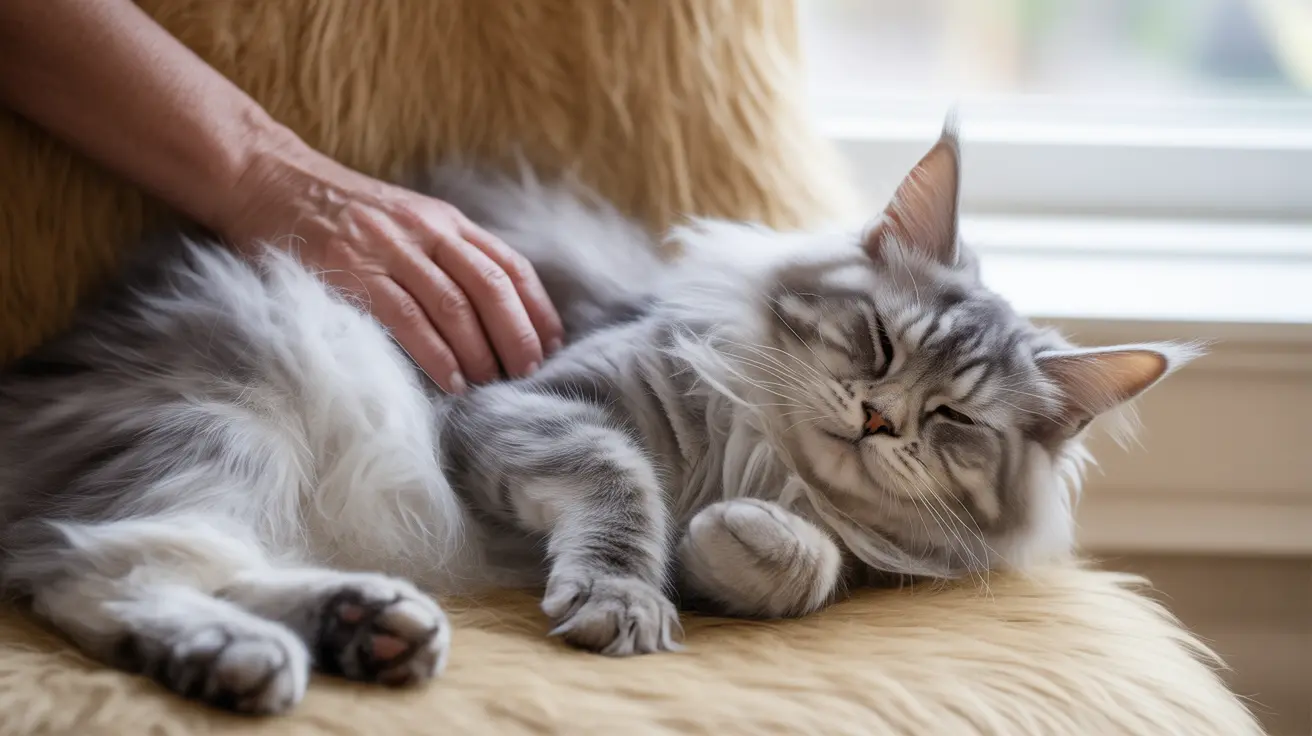Introduction
For cat owners, monitoring their feline friend's vital signs can provide crucial insights into their pet's health. One of the most important indicators is a cat's heart rate while sleeping, which can reveal valuable information about their overall well-being. Understanding what's normal and what isn't can help you identify potential health issues early and ensure your cat receives timely veterinary care when needed.
In this comprehensive guide, we'll explore the normal heart rate ranges for cats during sleep, how to measure it correctly, and when variations might signal a need for medical attention.
Normal Heart Rate Ranges for Sleeping Cats
A healthy adult cat typically maintains a heart rate between 120 and 160 beats per minute (bpm) while sleeping. This range represents the sweet spot for most cats in a state of deep relaxation. Some cats may experience rates as low as 110 bpm during particularly deep sleep, which is generally not cause for concern.
It's worth noting that kittens naturally have higher heart rates than adult cats, even during sleep. Senior cats might trend toward the lower end of the normal range, provided they're otherwise healthy.
How to Check Your Cat's Sleeping Heart Rate
Finding the Right Moment
The best time to check your cat's heart rate is when they're in a deep, peaceful sleep. Wait until your cat has been sleeping for at least 15-20 minutes to ensure they're fully relaxed.
Proper Measurement Technique
Place your hand gently on your cat's left side, just behind their front leg. You should feel the heartbeat against your palm. Count the beats for 15 seconds and multiply by four, or count for a full minute if possible. Avoid waking or startling your cat, as this will cause their heart rate to increase.
Factors Affecting Sleep Heart Rate
Age and Size
Younger cats and kittens typically have faster heart rates than adult cats, even during sleep. Larger cats might have slightly slower heart rates compared to smaller ones.
Environmental Influences
Room temperature, comfort level, and environmental stressors can all impact your cat's sleeping heart rate. Cats sleeping in warmer environments might have slightly elevated heart rates as their bodies work to regulate temperature.
When to Be Concerned
Warning Signs
Contact your veterinarian if you notice any of these concerning signs:
- Consistent heart rates below 100 bpm during sleep
- Heart rates exceeding 220 bpm while resting
- Irregular rhythm or skipped beats
- Difficulty breathing while sleeping
- Unusual lethargy or weakness upon waking
Additional Health Indicators
Pay attention to other vital signs that might accompany abnormal heart rates, such as changes in breathing rate, body temperature, or energy levels. These can provide important context for your veterinarian.
Tips for Monitoring Your Cat's Heart Health
Regular monitoring can help you establish what's normal for your cat. Keep a log of your cat's typical sleeping heart rate and note any significant changes. This information can be valuable during veterinary visits.
Frequently Asked Questions
What is the normal heart rate range for a cat while sleeping?
The normal heart rate for a sleeping cat typically ranges from 120-160 beats per minute, though it can sometimes drop to 110 bpm during deep sleep.
How can I accurately measure my cat's heart rate when it's asleep?
Gently place your hand behind your cat's left front leg while they're sleeping. Count the heartbeats for 15 seconds and multiply by four, or count for a full minute if possible.
Why does my cat's heart rate sometimes speed up or slow down during sleep?
Changes in heart rate during sleep can be caused by dreaming, environmental factors, or responses to external stimuli. Brief variations are normal, especially during REM sleep.
When should I be concerned about an unusually low or high heart rate in my sleeping cat?
Seek veterinary attention if your cat's sleeping heart rate consistently falls below 100 bpm or exceeds 220 bpm, or if you notice irregular rhythms or other concerning symptoms.
How do factors like age, stress, or environment affect a cat's heart rate during sleep?
Age (younger cats have faster rates), stress levels, environmental temperature, and overall health can all influence your cat's sleeping heart rate. Regular monitoring helps establish what's normal for your individual cat.
Conclusion
Understanding your cat's normal sleeping heart rate is an important aspect of responsible pet ownership. By regularly monitoring this vital sign and knowing what's normal for your cat, you'll be better equipped to identify potential health issues early. Remember to consult with your veterinarian if you notice any concerning changes in your cat's heart rate or overall health.






